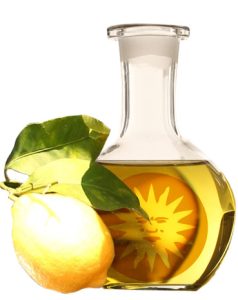Natural Essence of Petitgrain from Lemon Tree (Citrus limonum)
At Esencias Lorente, we are pleased to introduce our natural essence of lemon petitgrain (Citrus limonum), an exceptional aromatic option known for its freshness and versatility. Carefully extracted from the leaves and branches of the lemon tree through a specialized distillation process in stainless steel stills, our essence captures the refreshing and citrusy aroma of this vibrant plant.
With its fresh and versatile aroma, natural lemon petitgrain essence is valued for its ability to stimulate the senses and promote a feeling of energy and vitality. Widely used in the perfumery industry, aromatherapy, and personal care products, lemon petitgrain essential oil adds a refreshing and invigorating note to a variety of products, from perfumes to household products.
At Esencias Lorente, we are committed to providing natural lemon petitgrain essence of the highest quality, produced with care and attention to every detail. Additionally, we are proud to have recognized quality certifications, such as ECO CERT certification and kosher certification, which support our dedication to quality and sustainability at every stage of our production process.
Description: This essence is extracted from lemon trees leaves. It has a liquid aspect as well as it has a yellow colour. It has a fresh, citric and soothing smell.
Bloom: It blooms in summer and it is cultivated.
Growth: Mainly in Murcia.
Use: In perfumery.
TECHNICAL TABLE OF PETIGRAIN LEMON
ORGANOLEPTIC INFORMATION
PHYSICO-CHEMICAL INFORMATION
CHEMICAL COMPOSITION (Active principles)
The essential oil of petitgrain from the lemon tree is extracted from the leaves and twigs of the lemon tree (Citrus limonum). It contains a combination of chemical compounds that provide therapeutic and aromatic properties. Some of the main components present in the essential oil of petitgrain from the lemon tree are:
- Linalool: Contributes to the soft and fresh aroma and may have relaxing properties.
- Linalyl acetate: Another component that contributes to the aroma and may have calming properties.
- Limonene: One of the predominant compounds in lemon essential oil, providing a characteristic citrus aroma. It may also have stimulating and antioxidant properties.
- Terpinen-4-ol: Has antimicrobial properties and may contribute to the aroma of the essential oil.
- Geraniol: A compound that may have antiseptic and aromatic properties.
These are some of the main chemical components found in the essential oil of petitgrain from the lemon tree. The proportion and presence of these components can vary depending on the variety of lemon, growth conditions, climate, and the method of extracting the essential oil. The essential oil of petitgrain from the lemon tree is commonly used in aromatherapy and cosmetics for its fresh aroma and potential health benefits.
Description of Lemon Tree Leaves (Citrus limonum)
Lemon tree leaves (Citrus limonum) are an integral part of the lemon tree and possess distinctive characteristics that contribute to both the plant itself and applications in different areas, though their use and applications differ from those of the fruit and other derivatives.
Lemon tree leaves are oval-shaped, deep green in color, shiny, with a smooth and fragrant texture. They are distributed in opposite pairs along the branches of the lemon tree. Although not usually the most used part of the tree compared to the fruits, the leaves also have a characteristic citrus aroma, similar to lemons, though less intense.
Uses and Applications of Lemon Tree Leaves:
- Aromatization: Lemon tree leaves possess a fresh and citrus aroma, similar to the fruits, making them useful for aromatization. They can be used to make infusions, homemade potpourris, or simply to scent indoor spaces by placing them in vases or scented bags.
- Culinary Uses: In some cases, young lemon tree leaves have been used in cooking to add citrus flavor to certain dishes. However, their use in gastronomy is less common compared to the fruits or their peel.
- Traditional Medicine: In certain herbal medicine traditions, lemon tree leaves have been used in infusions or teas as a home remedy to alleviate mild stomach discomfort or to promote relaxation.
- Horticulture: At the tree level, the leaves play a crucial role in photosynthesis and the overall health of the lemon tree, contributing to its vitality and ability to produce fruit.
Lemon tree leaves, despite being less used than the fruits in culinary or medicinal applications, have a pleasant aroma and can have uses in aromatization and in some traditional practices of herbal medicine.
